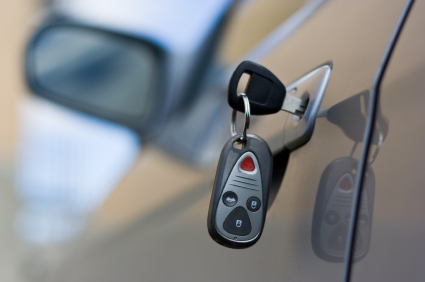
NOTE: The article below was modified to explain how the License to Work Act (Public Act 101-623) changed Illinois law concerning driver’s license suspension. After an effective date of July 1, 2020, the License to Work act effectively eliminated driver’s license suspension for non-moving violations, including many felony offenses that did not involve a motor vehicle.
An arrest for a felony offense in Illinois can have consequences beyond sentencing in court. In addition to the possibility of a prison sentence in the Illinois Department of Corrections (“DOC”), a defendant may lose their driver’s license.
The Secretary of State in Illinois has authority to suspend, cancel, and even revoke a person’s driving privileges for certain felony offenses that involve motor vehicles.
License Revocation
The law in this state provides that a conviction for any felony offense in which a motor vehicle was used will result in a revoked license for a minimum period of one year. See 625 ILCS 5/6-205(a)(3). What does it mean to have a vehicle used in the commission of a crime? It is agreed that a vehicle used in aggravated battery with a firearm, such as a drive-by shooting, falls into this category. But if a vehicle was used to flee the scene of a crime, such as a robbery, then it may also qualify.
After the one-year revocation, the driver must appear before the Illinois Secretary of State for a reinstatement hearing, also called a formal hearing. All too often, after someone is released on parole from DOC, they forget to file a request for hearing. In fact, most people released on parole are completely unaware that their licenses have been revoked while in custody. Nonetheless, the law says the Secretary of State can revoke their licenses as long as a notice was sent to the last known address.
License to Work Act
Before the License to Work Act became effective in 2020, a common felony offense that resulted in license suspension was the possession of controlled substances (“PCS”). A conviction for PCS used to result in a suspended license, rather than a revoked license. This means that the person’s driver’s license will be reinstated after one year, upon payment of a reinstatement fee.
Now that the License to Work Act is part of state law, Section 6-206(a)(28) of the Illinois Vehicle Code provides for one year of license suspension when a person commits the felony offense of possession of a controlled substance while operating or in physical control of a motor vehicle. A second offense results in a five-year suspension.
The statute directs the court sentencing the defendant for any such offense to forward a report to the Secretary of State. The picture in this article is one of the forms used to notify the Secretary of State of the offense.
The law also provides for license suspension if a vehicle was used in the commission of certain sex crimes. This list includes criminal sexual assault, predatory criminal sexual assault of a child, aggravated criminal sexual assault, criminal sexual abuse, aggravated criminal sexual abuse, juvenile pimping, and soliciting for a juvenile prostitute. If the alleged offender was operating or in physical control of a motor vehicle while committing these offenses, then their driving privileges will be suspended for one year. See 625 ILCS 5/6-206(a)(29).